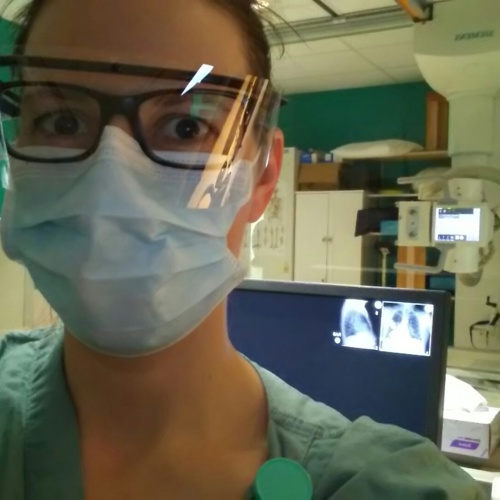Private sector contracts for medical imaging | The Legault government is hypocritical
February 18, 2021

Montréal – The APTS (Alliance du personnel professionnel et technique de la santé et des services sociaux) was shocked to learn from the media that the Legault government is once again turning to the private sector, this time to cope with the shortage of medical imaging and radiology technologists.
Contract talks to renew the collective agreement of public sector health and social services employees are currently stalled, and premiums to which APTS members are entitled are being withheld. This decision is just one more indication that the Legault government has nothing but contempt for these employees.
“Hypocritical is the word that comes to mind,” exclaims APTS president Andrée Poirier. “The Treasury Board and its president, Sonia Lebel, never have any money to improve working conditions for professionals and technicians in the public system. Yet somehow, the government can always pay for juicy private sector contracts. Worse yet, the health and social services minister, Christian Dubé, is maintaining a premium system that excludes professionals and technicians, and then we see him shedding crocodile tears at a press conference, saying there is a lack of personnel to provide care and services. How can you expect our members not to be angry when they see the government’s hypocrisy? It’s like having someone spit in your face.”
According to the APTS, which represents over 5,300 radiology, radio-diagnostic, radio-oncology, medical imaging, nuclear medicine, ultrasound, and medical electro-physiology technologists, this decision is a new step in the privatization of public services, coming after highly lucrative contracts signed with private labs for COVID-19 analyses and with psychologists and psychotherapists to mitigate staff shortages in mental health. Given the length of the waiting lists described in today’s Le Devoir, the APTS is concerned that these agreements may be maintained for years.
“The Legault government is taking advantage of the pandemic to keep on undermining the public system – a project begun under the previous government,” says Poirier. “Instead of dealing with problems of personnel retention and attraction by improving working conditions and making sure that people carrying the full weight of the system on their shoulders are fairly treated, the government has abdicated its responsibility to provide Quebecers with quality public services, and the private sector is benefitting. This is simply indecent.”
The union would like to remind the government and the ministry of health and social services that a similar situation has already occurred, at a time when radiology and medical imaging waiting lists had exploded. Instead of greasing private sector palms by offering indecent amounts as it is now doing with psychologists and psychotherapists, the MSSS reached agreements with the APTS to find ways of reducing waiting lists and recognizing the value of the work performed by technologists.
According to Poirier, “Solutions do exist, but this wheeler-dealer, business-oriented government would have to take off its blinkers and turn to the public system. By offering working conditions that would help attract and retain personnel, not only would the government be showing our members the respect they deserve, but it would also save money – which otherwise will be coming straight out of Quebecers’ pockets! This is the one thing that absolutely must be done to guarantee that all Quebecers have access to quality services. We’re always available to talk. Mr. Dubé and Ms. Lebel can reach me at any time of the day or night.”
The APTS
The APTS (Alliance du personnel professionnel et technique de la santé et des services sociaux) represents a total of 60,000 members who play a key role in ensuring that health and social services institutions run smoothly. Our members provide a wide range of services for the population as a whole, including diagnostic, rehabilitation, nutrition, psychosocial intervention, clinical support, and prevention services.

